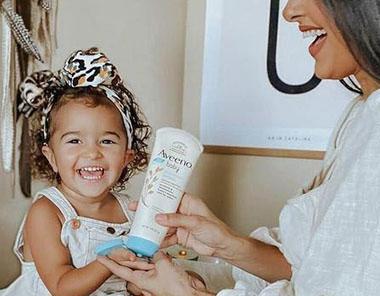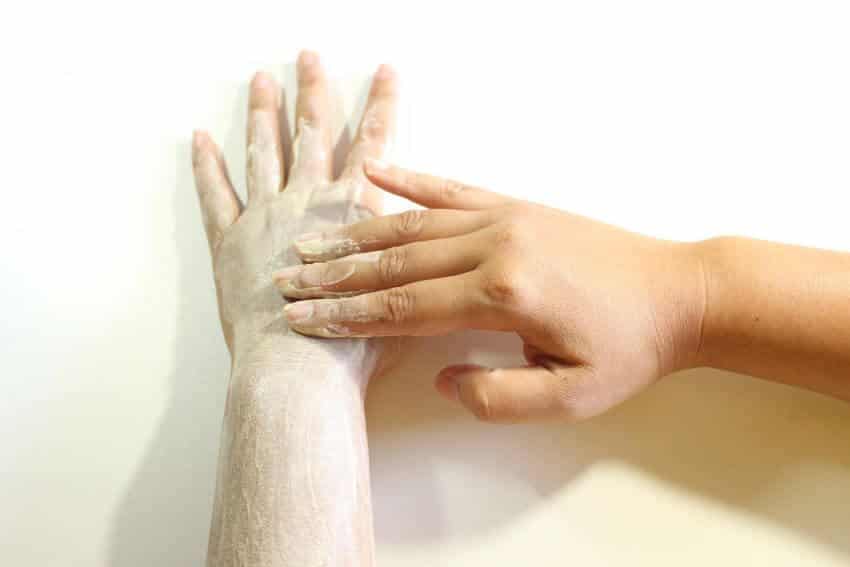As consumers increasingly prioritize values such as sustainability and animal welfare in their purchasing decisions, the question of whether the popular skincare brand Aveeno can be considered cruelty-free is coming into sharper focus. In this blog post, we’ll delve deep into the labyrinth of policies, looking beyond ambiguous labels and public relations buzzwords to uncover the truth about Aveeno’s animal testing practices.
Prepare to have your beliefs challenged as we unmask the reality hidden behind the cosmetics industry’s sparkling facade. Buckle up for a balanced scrutiny that might hold the power to change your next shopping decision.
According to our research, Aveeno’s animal testing policy states that they do not conduct animal testing unless required by governments or laws. However, Aveeno is owned by Johnson & Johnson, which tests on animals and is not considered a cruelty-free company.
Additionally, since Aveeno sells its products in China, where animal testing is mandated by law, they cannot be considered cruelty-free. It is recommended to look for third-party certifications like Leaping Bunny and the Vegan Trademark to determine if a brand adheres to cruelty-free practices.
Understanding Aveeno’s Cruelty-Free Status

To ascertain whether Aveeno is a cruelty-free brand, it is important to examine their animal testing policy and practices. Being cruelty-free means that a company does not test its products on animals at any production stage. It also implies that the brand does not commission animal testing to be conducted on their behalf by third parties.
Imagine standing in a store aisle, debating whether to purchase Aveeno products or seek alternatives. Understanding their cruelty-free status will influence your decision-making process and align it with your values and beliefs.
Aveeno’s Connection with Animal Testing

Regarding Aveeno’s connection with animal testing, there are some important considerations to remember. While the brand claims that they do not conduct animal testing on their cosmetic products anywhere in the world, except when required by governments or laws in rare situations, a few factors challenge their claim of cruelty-free.
Firstly, Aveeno is owned by Johnson & Johnson, which is not recognized as a cruelty-free company due to their willingness to test on animals where required by law. This raises questions about the extent to which Aveeno can truly distance itself from animal testing within the confines of its parent company’s practices.
Secondly, Aveeno is sold in China, where animal testing is mandated by law for cosmetic products. This means that Aveeno cannot be considered cruelty-free if they continue to sell their products in this market. It is important to note that China has recently made some progress toward alternative testing methods for certain types of cosmetics. Still, the requirement for animal testing remains for many products.
Comparatively, it’s like saying you are committed to eating only plant-based foods, but you continue to consume meat when dining at specific restaurants that don’t align with your values.
The presence of animal-derived ingredients in many of Aveeno’s products also raises concerns for those seeking vegan options. While Aveeno may offer some vegan products, most formulations contain ingredients such as lanolin, beeswax, collagen, keratin, gelatin, carmine, guanine, honey, silk, and squalene derived from animals.
Now that we have explored the nuances of Aveeno’s connection with animal testing and their ingredients, it is important to consider other ethical considerations when evaluating a brand’s cruelty-free status.
- According to PETA’s database, Johnson & Johnson, Aveeno’s parent company, is not considered a cruelty-free brand. This implies that Aveeno may test its products on animals during manufacturing.
- In China, where Aveeno has a large consumer market, it is mandatory by law for foreign cosmetics to be tested on animals before being sold. The Institute for In Vitro Sciences claims that more than 300,000 mice, guinea pigs, and other animals were used for testing in China in 2019 alone.
- As reported by Cruelty-Free Kitty, only around 17% of beauty brands are truly cruelty-free. This indicates that despite growing consumer awareness and concern about animal testing, most companies continue the practice either directly or indirectly.
Aveeno’s Ingredients and Ethical Considerations

When considering the ethical implications of a brand’s products, it is essential to examine the ingredients they use. Aveeno, known for its skincare and haircare products, claims to use natural ingredients that are beneficial for the skin. However, it is important to dig deeper into their ingredient sourcing practices to truly understand their ethical considerations.
Aveeno prides itself on using natural ingredients like oats, soy, and colloidal oatmeal in their products. These ingredients are generally well-known for their soothing and nourishing properties for the skin. They highlight that their products are free from synthetic fragrances and dyes, parabens, and phthalates.
While Aveeno promotes its dedication to nature-inspired ingredients, it is important to address the potential presence of animal-derived ingredients in their formulations.
When evaluating the ethics of a brand’s products, such as Aveeno, it is crucial to examine their ingredient sourcing practices. Aveeno claims to prioritize natural ingredients that are beneficial for the skin, including oats, soy, and colloidal oatmeal. They also emphasize being free from synthetic fragrances and dyes, parabens, and phthalates. However, it is important to consider the potential presence of animal-derived ingredients in their formulations.
See Related: Is Clinique Cruelty-Free? Exploring Their Animal Testing Policy
Animal-Derived Ingredients in Aveeno Products

A key consideration for those seeking cruelty-free and vegan products is whether a brand uses any animal-derived ingredients. In the case of Aveeno, some formulations may include components derived from animals. It is important to note that Aveeno’s official animal testing policy states that they do not conduct animal testing except where required by governments or laws. However, this does not specifically address the use of animal-derived ingredients.
It is worth mentioning that since Aveeno’s parent corporation engages in animal testing, it raises concerns about their overall commitment to cruelty-free practices. Additionally, while Aveeno may claim to use natural ingredients like oats and soy, it is possible that some of these ingredients could be sourced from suppliers who engage in animal testing or involve animal-derived by-products.
If avoiding animal-derived ingredients is a priority for you, many cruelty-free alternatives are available in the market. Brands like Acure, Derma E, Yes To, Skinfix, Bliss, and Cocokind offer skincare products that are both cruelty-free and vegan, providing ethical choices for consumers.
Consequences of Aveeno’s Policies on Skin Safety

Many consumers place great importance on the safety and effectiveness of skincare products, especially when it comes to products applied directly to their skin. While Aveeno claims to rely on nature’s soothing and healing properties to care for all types of skin, including sensitive skin, concerns may arise regarding the specific ingredients used and their potential impact on skin safety.
It is important to note that Aveeno does not explicitly address the issue of animal testing on their website. Without a clear animal testing policy, it is difficult to determine if Aveeno conducts or supports such practices. Therefore, for individuals who prioritize cruelty-free products or have ethical concerns regarding animal testing, Aveeno’s lack of transparency may raise questions about their products’ overall safety and ethics.
Additionally, some customers may have specific ingredient sensitivities, allergies, or other skin conditions that require careful consideration when choosing skincare products. Without detailed information about the ingredients used in Aveeno products and any potential side effects or interactions, customers with these concerns are uncertain.
For instance, individuals with rosacea may want to know if specific ingredients commonly found in skincare products can trigger flare-ups or worsen their condition. Without clear labeling or accessible information from Aveeno, customers face difficulties making informed decisions prioritizing their specific skin needs.
These consequences highlight the importance of transparency in product labeling and ingredient disclosure for consumers seeking safe and suitable skincare options. With clear information, individuals can confidently select products that align with their values and cater to their unique skin requirements. Now that we understand the potential consequences of Aveeno’s skin safety policies let’s explore how decoding Aveeno’s product labels can help make informed choices.
See Related: Is Jergens Cruelty-Free? Everything You Need to Know
Decoding Aveeno’s Product Labels

Understanding the information provided on product labels is crucial for consumers who wish to make informed decisions about the skincare products they use. When examining Aveeno’s product labels, there are key elements to pay attention to:
- Ingredients: Take note of the ingredients listed on the label. This can help identify potential allergens or irritants that may not suit your skin type or specific concerns.
- Product Claims: Look for specific claims by Aveeno about the product’s benefits or intended effects. This information can assist in determining if a particular product aligns with your skincare goals.
- Usage Instructions: Read the instructions on using the product correctly and any precautions or warnings highlighted. Following these instructions will ensure optimal results and minimize any potential risks.
By decoding Aveeno’s product labels and familiarizing yourself with each element, you can make more informed decisions about which products best suit your skin needs, concerns, and values.
See Related: Is Maybelline Cruelty-Free and Ethical? The Truth About Testing
Cruelty-Free Alternatives to Aveeno

If you’re concerned about animal testing and looking for alternatives to Aveeno, a few cruelty-free brands offer similar products. One popular option is the Oat & Coconut range from Superdrug’s brand. This range is vegan and eczema-friendly, making it an excellent alternative to Aveeno.
Not only is it more affordable than Aveeno, but you can also find it right beside Aveeno in stores. Superdrug’s Oat & Coconut range has received positive reviews for its effectiveness in moisturizing and soothing the skin.
Another cruelty-free alternative to consider is Dream Cream by Lush. This vegan body lotion uses oat milk, rose water, fairtrade organic cocoa butter, and chamomile oil. It has been highly praised for its ability to treat eczema and provide hydration to the skin. Lush is known for its commitment to ethical practices, and their products are not tested on animals.
When exploring cruelty-free alternatives to Aveeno, looking for brands that align with your values and meet your skincare needs is crucial. Whether it’s Superdrug’s Oat & Coconut range or Lush’s Dream Cream, these options offer effective solutions without compromising ethics. Let’s explore some recommended brands for ethical consumers beyond just Aveeno.
Recommended Brands for Ethical Consumers

For those committed to purchasing products from companies that prioritize ethics and sustainability, there are several other noteworthy brands to consider. One such brand is The Body Shop. They have a wide range of skincare products that are cruelty-free and ethically sourced. The Body Shop has pioneered the beauty industry in advocating against animal testing.
Another brand worth exploring is Drunk Elephant. Known for their clean and effective skincare formulations, Drunk Elephant emphasizes cruelty-free practices and environmentally conscious packaging. Their products are free from harmful ingredients and are made with clinically proven formulations.
One brand that has gained popularity in recent years is Herbivore Botanicals. They offer a variety of skincare products that are vegan, cruelty-free, and made with natural ingredients. Herbivore Botanicals also prioritizes sustainable packaging and recyclable materials.
When searching for ethical brands, it’s essential to do your research and look for certifications such as Leaping Bunny or PETA’s Beauty Without Bunnies logo. These logos indicate that a brand is committed to being cruelty-free.
The beauty industry offers consumers numerous alternatives to Aveeno that align with their ethical values. Finding the right brand for you involves exploring various options and determining which suits your skincare needs.
Related Resources:


